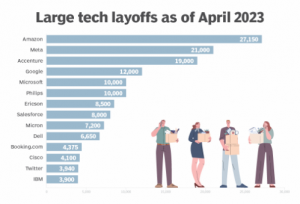The Ethical Minefield of Facial Recognition: Can We Stop the Weaponization of Technology?

As an expert in technology and a strong advocate for its ethical use, the recent news about a programmer attempting to create a facial recognition tool to identify women in adult films deeply concerns me. This incident, while unsettling, throws light on the critical need for robust discussions around privacy, data security, and the ethical boundaries of technology.
Here’s a breakdown of the situation and why it raises red flags:
1. The Incident:
An anonymous programmer, allegedly based in Germany, claimed to have developed a facial recognition system that matched images of women from social media platforms to those found on adult websites. While the individual stated the project was deleted and no data was made public, the very existence of such an initiative sparks serious ethical and legal concerns.
2. The Legal Ramifications:
This situation immediately brings the European Union’s General Data Protection Regulation (GDPR) into play. GDPR sets a high bar for data privacy and requires explicit consent for collecting and processing personal data, especially sensitive biometric data like facial scans.
- Data Collection Without Consent: Scraping publicly available data from social media profiles to identify individuals in a separate and sensitive context, without their knowledge or consent, is a blatant violation of GDPR.
- Purpose Limitation: GDPR mandates that data can only be collected for “specified, explicit and legitimate purposes.” Identifying individuals in adult content without their consent does not fall under any legitimate purpose and directly contradicts the principles of data minimization and purpose limitation.

3. The Global Impact and Enforcement Challenges:
While GDPR sets a strong legal precedent within the EU, the lack of comprehensive federal privacy laws in other regions, including the United States, creates a complex landscape.
- Jurisdictional Issues: The global nature of the internet makes it difficult to enforce regulations when data flows across borders.
- Resource Constraints: Data protection authorities often face resource limitations, making it challenging to pursue every case of potential data misuse.
4. The Ethical Implications:
Beyond the legal aspects, the ethical implications of such technology are deeply troubling.
- Harassment and Doxing: The potential for misuse is enormous. The information could be weaponized for harassment, doxing, or even extortion, leading to severe emotional distress and real-world harm.
- Impact on Vulnerable Individuals: Those who have participated in adult content, often facing societal stigma, could be disproportionately affected, leading to further marginalization and potential harm.

5. The Need for Proactive Measures:
This incident underscores the urgent need for a multi-pronged approach to address the ethical challenges posed by facial recognition technology.
- Robust Legal Frameworks: Globally, we need comprehensive data protection laws that prioritize individual privacy and consent, similar to GDPR.
- Ethical Development Practices: Tech companies and developers must prioritize ethical considerations throughout the development lifecycle, incorporating privacy by design principles.
- Public Awareness and Education: Raising public awareness about data privacy, digital rights, and the potential misuse of technologies like facial recognition is crucial.

Resources for Further Exploration:
- Electronic Frontier Foundation (EFF): https://www.eff.org/ – A non-profit organization defending digital privacy, free speech, and innovation.
- Access Now: https://www.accessnow.org/ – A global human rights organization fighting for digital rights and internet freedom.
- Privacy International: https://privacyinternational.org/ – An organization challenging government and corporate surveillance and promoting the right to privacy.
The potential for misuse of powerful technologies like facial recognition is a stark reminder that technological advancements must go hand-in-hand with ethical considerations. We need to collectively advocate for responsible development, robust legal frameworks, and increased public awareness to ensure that technology empowers, not endangers, individuals.








